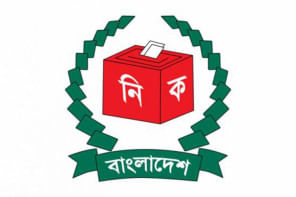Macroeconomy: Looking back and forward

The beginning of 2022 saw Bangladesh's economy poised to make a strong recovery from Covid-19 with demand across the world rebounding, supply chain backlogs easing and improving domestic consumption.
As the Russia-Ukraine war broke out in late February, rising prices of fuel and other essentials led to high inflation globally. And it particularly affected Bangladesh as it is dependent on imports, resulting in depreciation of the exchange rate that forced foreign reserves to fall from $48 billion in August 2021 to $33.78 billion in November 2022 ($25.78 billion as per the International Monetary Fund (IMF)).
Opening of the new letter of credits (LCs) reduced. The export-oriented industries struggled to calculate production costs due to the instability in the value of foreign currencies. Exchange rate volatility created uncertainty about returns as well as costs, thereby restricting investments. Electricity crisis in recent months added fuel to the already rampant fire.
Under these troubled times, many speculated that the economy was taking a downturn as Bangladesh sought assistance from the IMF. As the country continues to wait for the first installment of $4.5 billion in loans from the IMF, expected in February, some of its growth drivers seem to be improving.
Rebounding exports and remittances to some extents have raised hopes that Bangladesh can avoid a more severe economic crisis.
Export earnings in November came to a record $5.092 billion, up 26 per cent on the year and well above October's $4.356 billion. Few Bangladeshi garment manufacturers have also begun making higher value-added items after technological upgrades. People are optimistic that the higher earnings trend would continue in the coming months -- if gas and electricity supplies, plagued by shortages, can be stabilised.
Meanwhile, remittance inflows, another key source of foreign currency for Bangladesh, rose in November to $1.59 billion, up from $1.55 billion in the same month a year earlier and beating the previous two monthly figures.
Officials say the government has taken a raft of measures to prevent inflows of remittances outside proper banking channels. This includes suspending a few mobile financial services accounts who were allegedly involved in illegally channeling remittances, as well as offering better exchange rates to encourage remitters to use proper channels.
Apart from the attractive 'Hundi' route, a key reason why people do not use banking channels to send money is that it is very complex. Hence simplifying the process and making it user-friendly could be important in improving the situation.
Many in the government have opined that the country's economy will be completely normal by March or April next year.
As we know, crises can be opportunities to solve deep-seated issues that under less difficult conditions may remain unresolved for a long time. Strengthening institutions and the financial system is important during these critical times. Ensuring legal predictability and stability is required to make sure both domestic and foreign investors come in.
Globalisation will continue to be there even though it is changing its form. The world is seeing a shift in global trade patterns, more towards emerging markets.
Bangladesh must come out of this crisis stronger. The export potential of the country remains almost entirely dependent on the RMG industry which represents a major missed opportunity. We must move towards greater value-add products both in RMG and outside such as consumer electronics, pharmaceuticals etc.
Further, we need to take advantage of the credibility that graduating from a least developed country (LDC) status grants us by forging 'Free Trade Agreements' with countries globally that will help us improve our export basket and encourage local companies to explore new markets. We should draw lessons from Vietnam's support of their local companies.
Bangladesh needs to ensure that backward linkage helps to avoid a repeat of the foreign reserve crisis that we are facing now. Most of the key industries are dependent on imports which is an unsustainable position that we must solve for. Trying to develop these key industries will further create employment and skills transfer and encourage foreign companies to set up in Bangladesh.
The country ought to continue to diversify the economy and export sources. At the same time build important infrastructure, not only physical, but also digital and human capital.
Mamun Rashid is an economic analyst.

 For all latest news, follow The Daily Star's Google News channel.
For all latest news, follow The Daily Star's Google News channel. 



Comments